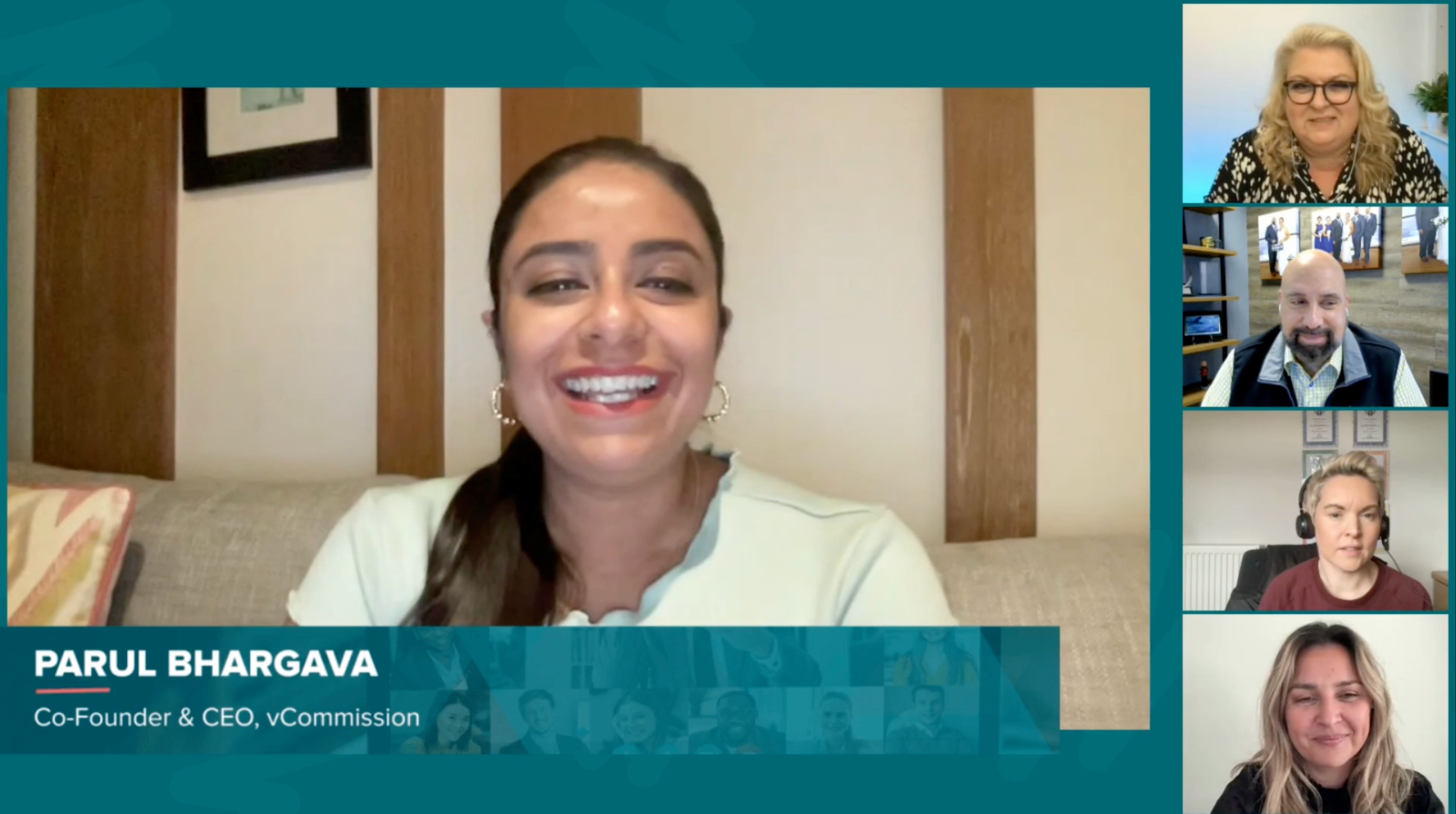This blog covers a recent affiliate marketing panel discussion about fraud and building trust in affiliate marketing, emphasizing the value of strong connections, data analysis, and proactive initiatives for affiliate managers and affiliates.
vCommission’s Chief Executive Officer, Parul Bhargava, spoke as one of the speakers at the Amplify Summit 2024. She highlighted the importance of relationships in preventing fraud throughout the affiliate marketing ecosystem.

Here are some key takeaways:
1. The Power of Partnership: Building Relationships to Prevent Fraud
Open Communication: Maintain clear communication channels with networks, affiliates, and advertisers. This enables quick examination of suspected activity (e.g., high order value) by contacting parties to confirm details and sources.
Affiliate Selection: Implement a thorough vetting process during onboarding to avoid issues like account churning.
Affiliate Support: Foster strong relationships with affiliates. They can become valuable partners in identifying suspicious activity within the program.
2. Data Analysis: Tools and Techniques to Detect Fraudulent Activity
Effective fraud prevention requires vigilance and data-driven insights.
Here’s what the panel discussed:
Fraud Detection Tools: Consider utilizing software solutions like Parul’s custom-built tool, which uses an Excel macro to analyze traffic based on IP patterns, conversion time, referrals, and other factors. This information informs the quality scores we assign to affiliates and traffic sources.
Data Monitoring: Leverage available affiliate tracking tools to analyze traffic patterns and identify irregularities that might indicate fraud.
3. Defining Fraud and Setting Expectations
Parul demonstrated the need to define fraud within the context of your specific program and business model. This clarity helps establish expectations for both affiliates and organization, leading to a stronger onboarding process with relevant questions to identify potential risks.
4. Affiliate Best Practices: Monitoring Traffic
Parul highlighted the importance of affiliates taking an active role in fraud prevention by:
Traffic Source Monitoring: Regularly monitor traffic sources to assure legitimacy and detect fraudulent activities.
Fraud Prevention Tools: Use internal resources or invest in third-party solutions created expressly for detecting fraud in your affiliate traffic.
5. Affiliate Networks: More than just connections
The discussion explored the evolving role of affiliate networks. Parul argued that true networks should offer more than just a platform connecting advertisers and publishers.
Valuable services include:
Affiliate Verification: Networks should implement robust verification processes to ensure the legitimacy of affiliates joining the program.
Payout Guarantees: Offering payout assurances to publishers, even in the event of an advertising issue, protects publishers and builds trust within the network.
Conflict Resolution: Effective networks should have mechanisms in place to mediate disputes between affiliates and advertisers.
6. Finding the Right Balance in Affiliate Disclosures
The panelists discussed the current controversy over affiliate disclosure regulations.
Parul feels that with greater consumer knowledge of advertising, continual reminders regarding affiliate commission connections may be unnecessary.
7. Brand Bidding in Affiliate Marketing
Parul offered insights on brand bidding and PPC fraud:
Trademark vs Bidding: Bidding on a brand’s trademark might not always be illegal, especially if the terms are available for purchase on search engines. However, it can significantly increase the brand’s PPC costs.
Fake Discounts: Affiliates bidding on a brand’s terms and offering fake discount codes that require surveys for lead generation are considered fraudulent as they damage the brand’s reputation.
Contractual Obligations: While suing for PPC infringement can be challenging, breaching an affiliate agreement’s terms (e.g., not bidding on brand terms) could be considered a contractual violation.
8. Handling Delayed Payouts in CPA Models
Parul addressed the challenge of delayed payouts in CPA models:
Proactive Verification: Before payouts, consider triple-checking traffic sources for abnormalities and directly communicating with advertisers to confirm the legitimacy of high-value conversions.
By implementing these strategies and fostering strong relationships across the affiliate marketing ecosystem, businesses and affiliates can work together to create a more secure and prosperous environment for everyone involved.

